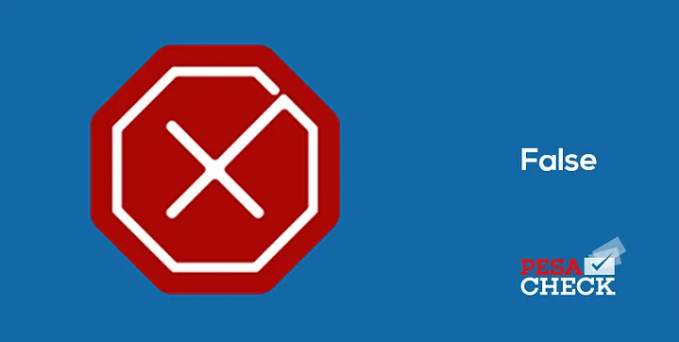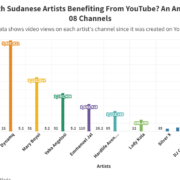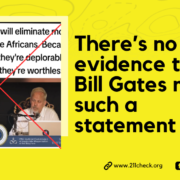MISSING CONTEXT: This video claiming a tiny fragment of HIV was added to a COVID-19 vaccine has been misrepresented
The vaccine by the University of Queensland (UQ) in Australia was never rolled out, as the project was abandoned in December 2020.
Writer: PesaCheck
This Facebook post with a video claiming a tiny fragment of HIV was added to a COVID-19 vaccine is MISSING CONTEXT.
The post reads, “A tiny fragment of HIV” added to vaccine.”
The video begins with the narrator saying: “Science gone absolutely mad,” while text overlaid on the 44-second clip reads: “Did she just say they added a tiny fragment of hiv? Wtf! We want answers!!! Yes she said HIV.”

Another Facebook post with a screenshot from the video reads, “So whose had the covid jab bet u didn’t now this , wtf (sic)”.

A reverse image search of a screenshot from the video on Yandex established that the person featured at the end of the clip is Keith Chappell, a professor at the University of Queensland (UQ) in Australia, during a BBC interview.
In the clip, Chappel says that the protein used is of “a highly stable structure” and that there is no risk of “HIV replicating”.
A Google keyword search for “covid vaccine with HIV fragment” established that the UQ and global biotech company CSL were developing a vaccine that included a fragment of an HIV protein with the view of adding stability to the intended antibody target; the spike protein of the pandemic coronavirus SARS-CoV-2.
However, the claim in question leaves out crucial information on the vaccine.
Testing of participants in phase 1 of the trials in July 2020 did not find any evidence of the HIV virus present, and thus participants were not at risk.
Further, the UQ vaccine was abandoned in December 2020 after some trial participants returned false-positive results for HIV. For this reason, the vaccine was not rolled out for use by the general public.
PesaCheck has looked into a Facebook post with a video claiming a tiny fragment of HIV was added to a COVID-19 vaccine and finds it to be MISSING CONTEXT.
This post is part of an ongoing series of PesaCheck fact-checks examining content marked as potential misinformation on Facebook and other social media platforms.









Leave a Reply
Want to join the discussion?Feel free to contribute!